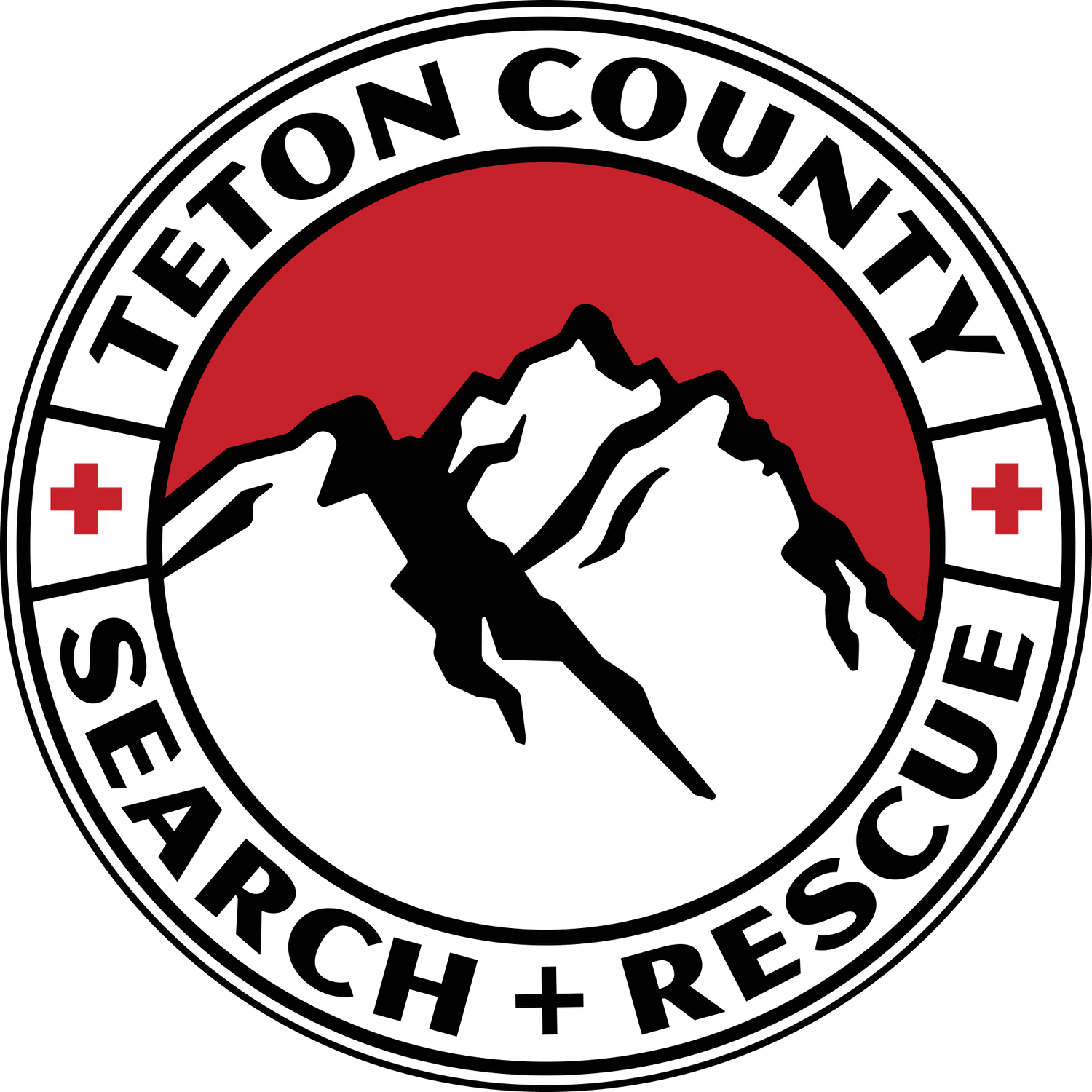During Old Bill's Giving Season, your support for TCSAR volunteers helps keep the backcountry safe
The power and efficiency of a modern snowmobile means you can travel farther, faster and stay out longer than the best riders barely dreamed of just 10 years ago. Advanced engineering, better floatation in powder, and improved maneuverability make for some all-time days.
"The best day I had this last year, we were the only people out. It was bluebird and we had deep powder,” says Doug Van Houten, a TCSAR volunteer since 2015. “We were getting face shots on every turn, like the snowmobile was tunneling through the snow. We went 30 miles that day.”
But as TCSAR volunteers know all too well, that same speed and power can get people into trouble, and turn an all-time day into tragedy. Over the last several years, avalanche deaths among snowmobilers in Wyoming have grown at an alarming rate. Since reporting began decades ago, there have been 37 snowmobilers who’ve died in avalanches in Wyoming, compared to 26 backcountry skiers, according to statistics from the Bridger-Teton National Forest Avalanche Center.
Doug Van Houten, a TCSAR volunteer since 2015, is the team’s logistics advisor. Photo: Morris Weintraub
For the last 10 years in Teton County, snowmobilers have accounted for roughly 35 percent of all callouts each winter, versus 58 percent for backcountry skiers and snowboarders. Snowmobile callouts range from people getting lost, stuck, crashing, or getting caught in avalanches. At times, the team may respond on snowmobiles, but transition to skis at a wilderness boundary, as they did two winters ago during a two-day mission to save three snowmobilers who’d become lost and stuck in the Teton Wilderness.
To respond to these incidents, TCSAR volunteers have made it a priority to train and be equipped on sleds. They keep seven snowmachines in Jackson, and two in Alta to respond to accidents on the west side of the Tetons. Volunteers may also use their own sleds depending on the situation, and they train how to use the machines with different types of toboggans for hauling gear and people across difficult terrain.
The widespread and challenging nature of snowmobile rescues is one reason why your donations to the Teton County Search and Rescue Foundation through Old Bill’s this year are so important. Our volunteers need to have access to technology and training that helps them keep pace with modern snowmachines in order to handle the incident load.
TCSAR volunteer Galen Parke stamps his passport to Trench Town during a training session last winter. Photo: David Bowers
Van Houten, also the logistics advisor for TCSAR, offers the following recommendations for having all-time days:
Know the consequences
Before heading out, make sure you are prepared for environmental, mechanical, and medical scenarios. Carry the right gear in avalanche terrain, and more importantly, know how to use it. The Mountain Riding Lab offers avalanche safety classes by snowmobilers, for snowmobilers.
Be mindful
Always pay attention to terrain, navigation, snow conditions, and your own energy level. Many people are excellent at riding, but they may not have experience managing avalanche terrain, creek beds, and other hazards.
Talk it out
Communication is key, both within your group and the outside world. Two-way radios, like these from Backcountry Access, are excellent options to keep tabs on your riding partners, whereas emergency locator beacons, such as a Garmin inReach, allow you to call for help even without cellular service.
Remember to discuss your plans with your group before hitting the trail. Talk about expectations, a plan everyone can agree on, ability level, and comfort level for riding in the backcountry.
Think about it
Your brain is your best tool, exercise it.
If you'd like to help support the efforts by our team to continue to save lives in the Jackson Hole backcountry, we humbly ask for you to consider making a donation to TCSAR Foundation through Old Bill's. This is the best time of the year to support TCSAR volunteers, as matching funds from the community help stretch your dollars.
As locals and visitors continue to flee the pandemic into the Teton County backcountry, it's more important than ever for the community to have a healthy and strong TCSAR team. We would be grateful for any and all support.



